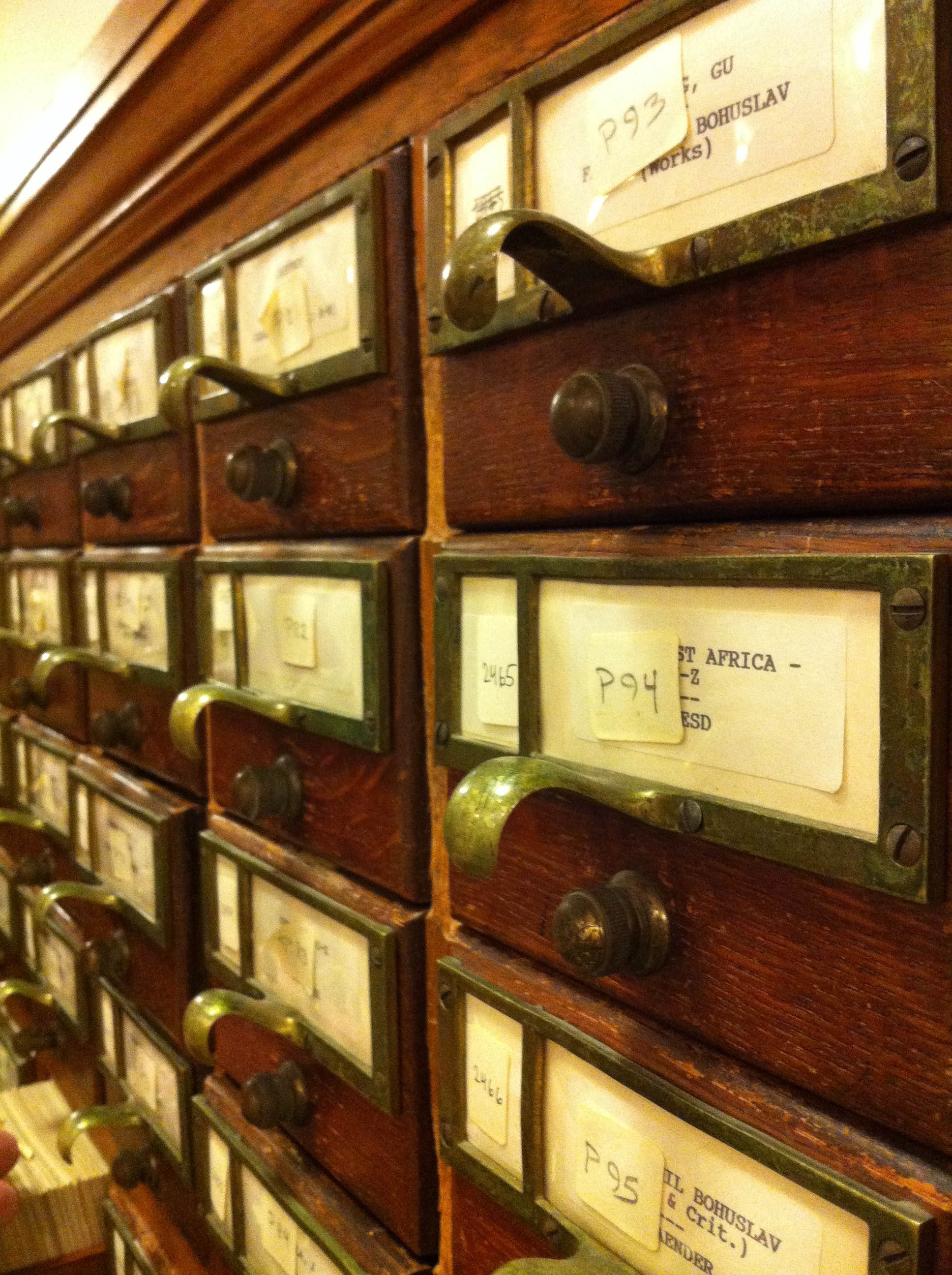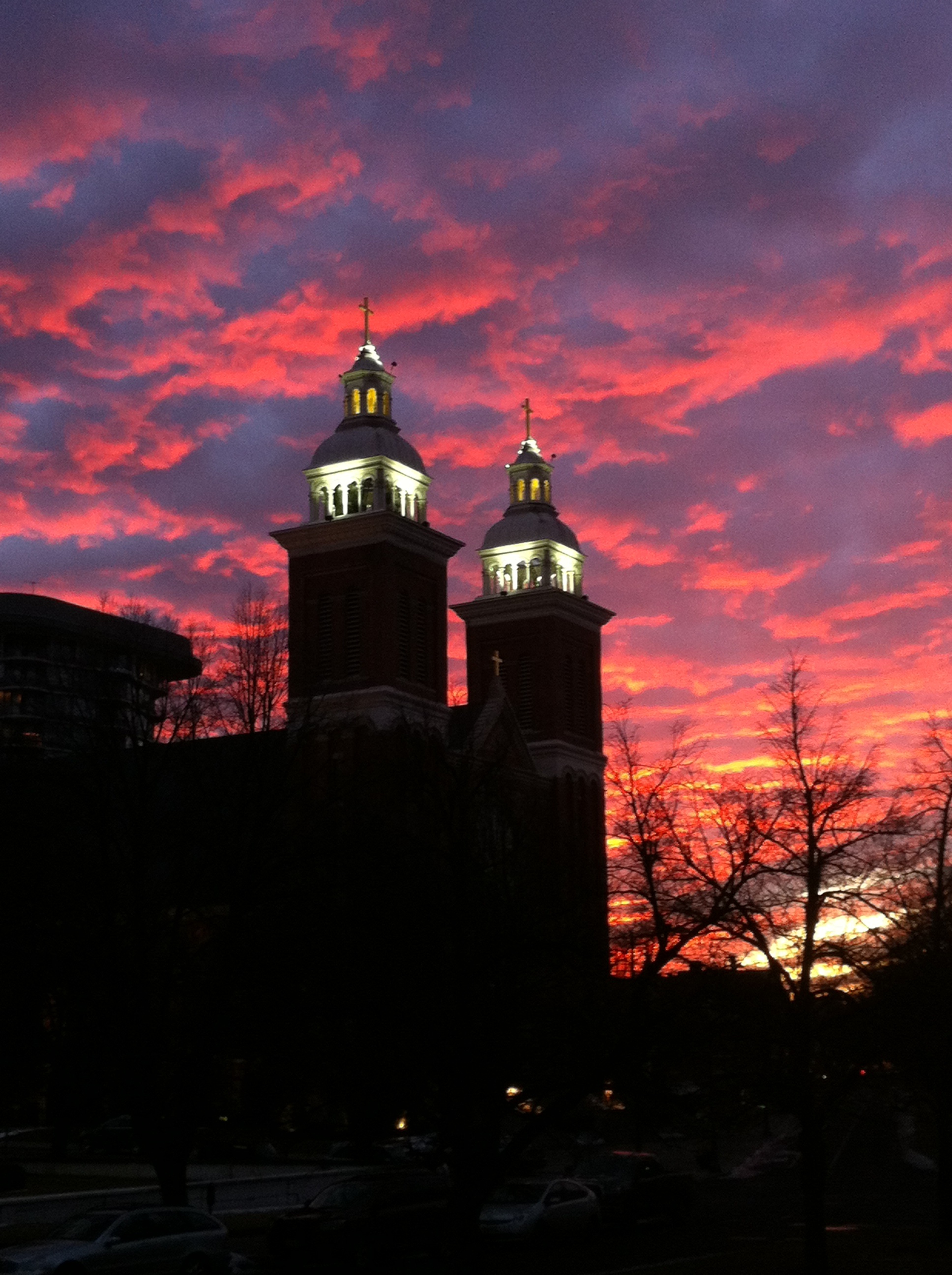by Amanda C.R. Clark
My friend and scholar Dr. Eric Cunningham recently wrote a chapter in Becoming Beholders (Liturgical Press, 2014), titled “Beholding the Eschaton,” which is an exploration of, as he writes, “an apocalyptic, psychedelic, postmodern guide to transcending the historical world, including some practical exercises on how to avoid becoming a zombie at the end of history” (205). Zombies, transhumanism, and the “theory of everything” have been much on my mind as of late, and I offer here just a few musings on these wandering yet interrelated topics.
As a library director, I think a great deal about books. As a library director in a digital age, I think a great deal about what is real and what is not. Each day I feel as if I enter a holodeck that might at any moment shimmer before my eyes and leave little around me save a digital grid waiting to be filled with code. What is the physical book? I often consider the nature of real things, why real things matter, and I ponder, sometimes lying awake nights, how I might encourage others to recognize that real things do matter; really.
Contemporary books can be viewed as part of a continuum with medieval illuminated manuscripts – somewhat transcendent of time and place and yet physically, materially luxurious, pushing and pulling between the temporal and the mystical. Physical books when read reveal themselves slowly, heightening their mystical, or sacral qualities. As book ritual, they are dependent on deliberately slow moments and movements. In his book, The Spirit of the Liturgy, Joseph Cardinal Ratzinger (Benedict XVI), discusses the necessity of heart-stilling careful motions in undertaking ritual. This ritualized experience extends to the book as a physical object, to the library by extension, even to our entire lives lived as ritualized behaviors that draw us into our pursuit of perfect selves. All of this, as Cunningham explores in the above-mentioned chapter, is dependent on our consciousness, as consciousness is the foundation for any theory of everything.
Lars Qvortrup, in his “Digital Poetics” (2003), dilates on a point that gives me pause. When interacting with digital environments “the spirit stays away” (248). While intangible, our spirit, our consciousness, is deeply responsive to that which is physical, that which is real. Michael Curry has suggested that books are merely the veneer of the author; but perhaps all tangible things are merely a veneer for the creator, with the digital even more thin, more veil than veneer.
I recently read a book review that challenged the author to stop valorizing the ideal of the world, and instead to emphasize the elements of messiness and decay in history. Are we not, then, already living in a zombied environment? I resonate with Cunningham’s inspired essay because we appear to occupy the end of one historical era, the end of the history of the library as we have known it. At the end of my college course on artists’ books this past semester a student relayed to me that the class impacted his thinking on books, particularly rare illuminated manuscripts, because it caused him to recognize these objects as something truly precious. Indeed, the sacred remains; there are things — actual, real things — that retain enormous value in human society. Humans make things, bound in time and space, that are sacred objects, physical objects that remind us perhaps that we already live in an apocalyptic world. I see death every day, the death of the physical book. Persons often send us their surplus books, hoping to find for them a resting place; sad cadavers. I inhabit a biblio-eschaton.
Comfort might be found in myth: older than historical documentation, myth may live on after we’ve lost historical documentation in the transhuman, post-historical era that we are, I am told, entering. Myth captures something fleeting. Though it may distort truth, it carries essence forward in telling and retelling. There is something essentially real in the putative unreality of myth. Besides, what is left after the humanities have been devalued and the sciences deified? Perhaps Mircea Eliade was right about sacred time and myth, which brings us back again to ritual in lived experience. And doesn’t it all return to experience, our experience, my experience, which is how I come to define my consciousness? Consciousness — and perhaps Tom Campbell would agree — seems to be the hinge pin of human reality as it is understood.
There is a crisis of postmodernity, but the crisis is not inside the library or the church or the classroom; the crisis is inside each one of us. Why else do we fear and yet are dazzled by the idea of zombieland, of apocalypse, of “the end”? Revelation is a deeply personal story. I think you see why I might see the book, Logos, and Word as something inherently sacred, and why many librarians persist in their battle for the physical object. As Cunningham writes, we must “reduce the ambient noise in our lives” and live in “vivid awareness of our life with the Almighty” (221).
Amanda C. R. Clark, PhD, earned her doctorate at The University of Alabama, and holds master’s degrees in library studies and art & architectural history. She is presently library director at Whitworth University. She is co-author with Leland M. Roth of the third edition of Understanding Architecture: Its Elements, History, and Meaning.



One Response
Props for using zombies, eschaton, and holodeck in the same thoughtful piece about the sacred. I think that definitely qualifies as interdisciplinary!